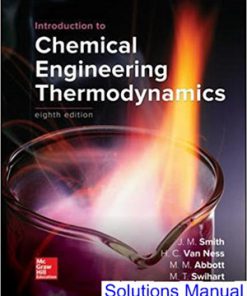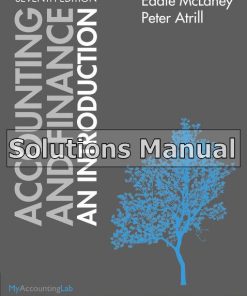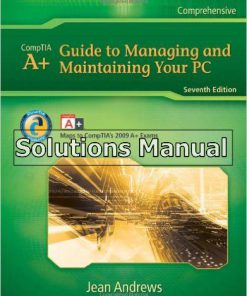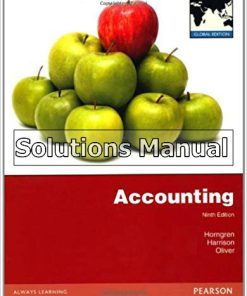Basic Principles And Calculations In Chemical Engineering 8th Edition Himmelblau Solutions Manual
$26.50$50.00 (-47%)
Basic Principles And Calculations In Chemical Engineering 8th Edition Himmelblau Solutions Manual.
You may also like
Basic Principles And Calculations In Chemical Engineering 8th Edition Himmelblau Solutions Manual
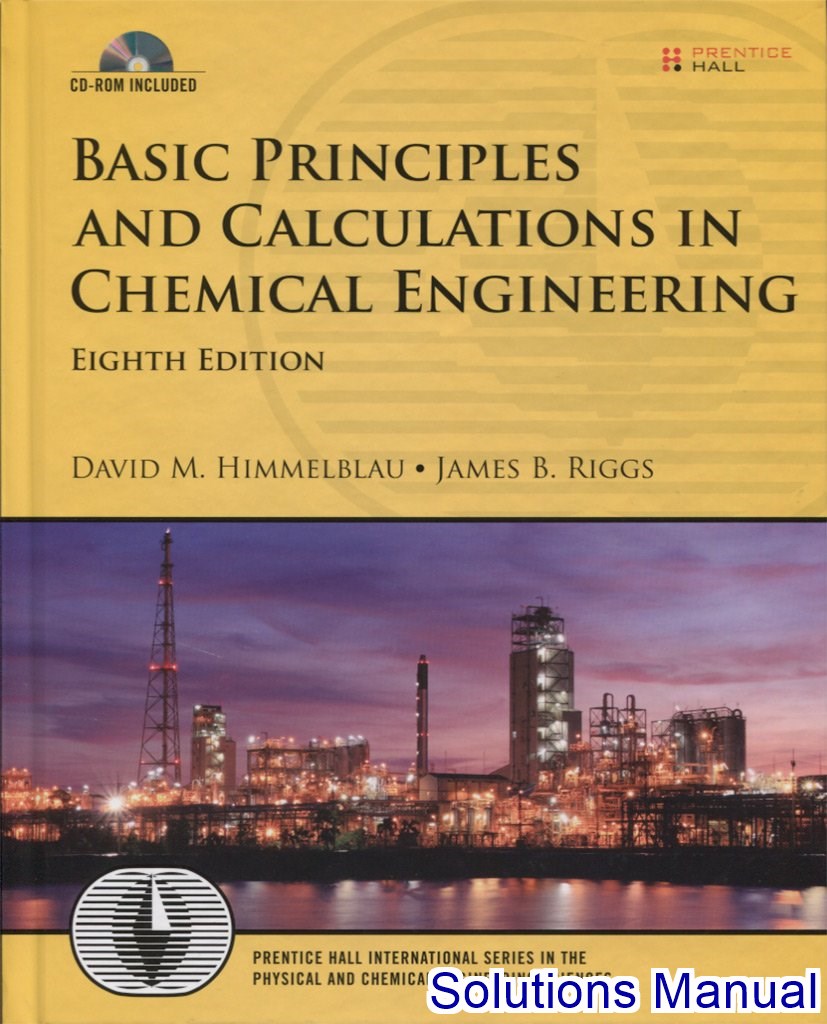
Product details:
- ISBN-10 : 0132346605
- ISBN-13 : 978-0132346603
- Author: David M. Himmelblau
Basic Principles and Calculations in Chemical Engineering, Eighth Edition goes far beyond traditional introductory chemical engineering topics, presenting applications that reflect the full scope of contemporary chemical, petroleum, and environmental engineering. Celebrating its fiftieth Anniversary as the field’s leading practical introduction, it has been extensively updated and reorganized to cover today’s principles and calculations more efficiently, and to present far more coverage of bioengineering, nanoengineering, and green engineering.
Table contents:
PART I: INTRODUCTION 1
Chapter 1: What are Chemical Engineering and Bioengineering? 3
1.1 Introduction 3
1.2 A Brief History of Chemical Engineering 4
1.3 Where Do Chemical and Bioengineers Work? 6
1.4 Future Contributions of Chemical and Bioengineering 7
1.5 Conclusion 10
Chapter 2: Introductory Concepts 11
2.1 Systems of Units 12
2.2 Conversion of Units 17
2.3 Dimensional Consistency 25
2.4 Significant Figures 29
2.5 Validation of Results 36
2.6 The Mole and Molecular Weight 37
2.7 Choosing a Basis 44
2.8 Density and Specific Gravity 49
2.9 Concentration 55
2.10 Temperature 59
2.11 Pressure and Hydrostatic Head 65
2.12 Flow Rate 78
Part II: Material Balances 99
Chapter 3: Material Balances 101
3.1 Introduction to Material Balances 102
3.2 A General Strategy for Solving Material Balance Problems 123
Chapter 4: Material Balances without Reaction 159
Chapter 5: Material Balances Involving Reactions 189
5.1 Stoichiometry 190
5.2 Terminology for Reaction Systems 198
5.3 Species Mole Balances 210
5.4 Element Material Balances 226
5.5 Material Balances for Combustion Systems 233
Chapter 6: Material Balances for Multi-Unit Systems 267
6.1 Primary Concepts 268
6.2 Sequential Multi-Unit Systems 271
6.3 Recycle Systems 290
6.4 Bypass and Purge 306
6.5 The Industrial Application of Material Balances 314
Part III: Gases, Vapors, and Liquids 347
Chapter 7: Ideal and Real Gases 349
7.1 Ideal Gases 350
7.2 Real Gases: Equations of State 366
7.3 Real Gases: Compressibility Charts 377
7.4 Real Gas Mixtures 384
Chapter 8: Multiphase Equilibrium 411
8.1 Introduction 411
8.2 Phase Diagrams and the Phase Rule 413
8.3 Single Component Two-Phase Systems (Vapor Pressure) 425
8.4 Two-Component Gas/Single-Component Liquid Systems 436
8.5 Two Component Gas/Two Component Liquid Systems 455
8.6 Multicomponent Vapor-Liquid Equilibrium 466
Part IV: Energy 487
Chapter 9: Energy Balances 489
9.1 Terminology Associated with Energy Balances 491
9.2 Types of Energy to Be Included in Energy Balances 496
9.3 Energy Balances without Reaction 530
Chapter 10: Energy Balances: How to Account for Chemical Reaction 597
10.1 The Standard Heat (Enthalpy) of Formation 598
10.2 The Heat (Enthalpy) of Reaction 603
10.3 Integration of Heat of Formation and Sensible Heat 614
10.4 The Heat (Enthalpy) of Combustion 635
CHAPTER 11: Humidity (Psychrometric) Charts and Their Use 653
11.1 Terminology 654
11.2 The Humidity (Psychrometric) Chart 657
11.3 Applications of the Humidity Chart 666
Part V: Supplementary Material 681
Chapter 12: Analysis Of The Degrees Of Freedom in a Steady-State Process 683
Chapter 13: Heats of Solution and Mixing 708
Chapter 14: The Mechanical Energy Balance 728
Chapter 15: Liquids and Gases in Equilibrium with Solids 756
Chapter 16: Solving Material and Energy Balances UsingProcess Simulators (Flowsheeting Codes) 768
Chapter 17: Unsteady-State Material And Energy Balances 800
Appendixes 827
Appendix A: Answers to Supplemental Questions and Problems 829
Appendix B: Atomic Weights and Numbers 844
Appendix C: Table of the Pitzer Z0 and Z1 Factors 845
Appendix D: Heats of Formation and Combustion 850
Appendix E: Answers to Selected Problems 854
Appendix F: Physical Properties Of Various Organic And Inorganic Substances 861
Appendix G: Heat Capacity Equations 873
Appendix H: Vapor Pressures 877
Appendix I: Heats of Solution and Dilution 878
Appendix J: Enthalpy-Concentration Data 879
Appendix K: Thermodynamic Charts 886
Appendix L: Physical Properties of Petroleum Fractions 893
Appendix M: Solution of Sets of Equations 902
Appendix N: Fitting Functions to Data 924
Index 928
People also search:
Basic Principles And Calculations In Chemical Engineering 8th
Basic Principles And Calculations In Chemical Engineering 8th pdf
Basic Principles And Calculations In Chemical Engineering 8th download scribd
Basic Principles And Calculations In Chemical Engineering 8th pdf free
Basic Principles And Calculations In Chemical Engineering 8th full link download




